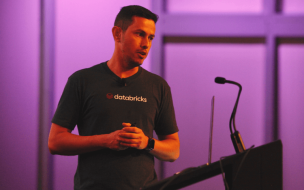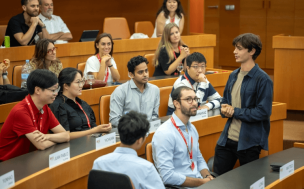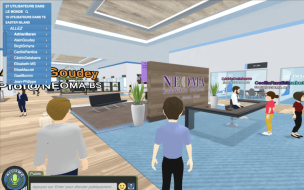So says Joseph Pistrui, professor of entrepreneurial management at IE Business School, writing in a January Harvard Business Review article.
It sounds ominous, and employees already appear to be feeling the strain of digitization on the workforce.
According to a 2017 Capgemini study 29% of employees believe their skillset is redundant now, or will be in the next one to two years. That figure goes up to 38% for those who believe their skills will be obsolete in the next five years.
The stats worsen when you consider soft digital skills. 59% of respondents say their organization faces a lack of qualified employees with adequate soft digital skills; 45% of surveyed people say the training programs their employers provide are not helping them gain new digital skills; and 42% of surveyed people say the company-offered trainings they attend are ‘useless and boring’.
So, what can be done?
The future is human
Business schools play an important role in the training of the future workforce—students need to graduate ready to tackle the challenges the next decade and beyond will throw at the business world.
Terence Tse...
Through his own analysis, Terence says that he’s identified persuasion and negotiation, attention to detail, and complex problem solving as key. Interpersonal skills, active learning, broad-based knowledge, and personal brand cultivation will also be tantamount to a successful employee of the future.
“In view of the future there are more and more technologies coming into our private lives and workplace, and the result is that we need to come up with a new set of skills,” he says.
“The nature of jobs and how jobs are run in the next decade is going to be quite different from the way we know it right now.”
Although artificial intelligence and robotics will inevitably impact the nature of work in the future, humans will remain human, and thus will need to home in on the skills that differentiate us from our technological counterparts.
Terence explains that creativity, originality, and a fluency of ideas will be key competencies we will need in the future. He also says that emotional intelligence will become more important, alongside perseverance, focus, tenacity, and resilience.
In light of demand for these skills, ESCP Europe is launching a new Master in Digital Transformation Management & Leadership in September 2019.
Terence explains the course has three pillars. One is the teaching of cognitive and leadership skills; then, there are digital technologies; and the third is transformation management.
“What we’re trying to do is bring in things that are practical and at the cutting edge, in the sense of thinking about how business is changing and what skills are needed,” he adds.
A culture of lifelong learning
Tracey Camilleri (pictured below, right), who leads the Oxford Saïd Business School Strategic Leadership Program, explains that the future leaders of the workforce will be those who want to learn, not just teach.
The biannual program focuses on the human aspect of business, and draws widely on the humanities—Tracey says that students learn from history, philosophy, art, and literature. She has recently led a class around leadership lessons from Shakespeare’s The Tempest.
But, rather than future-proofing executives against the ailments brought on my technological advancement, Tracey says she prefers to look at the program as preparing executives to thrive in an age of opportunity.
“I wouldn’t be doing what I’m doing if I wasn’t optimistic about the future,” she says. “What we’re enabling people to see is how they are in the business of creating the future.”
To do that, executives must create a culture of lifelong learning within their organizations. For Tracey, this adds up to having the confidence to not know.
“If you don’t know, you ask much better questions and have the confidence to realize this is not dithering, or weakness, it’s actually a strength.”
No single person can have the answers to everything. Finding the gaps in your own knowledge, and having the humility to bring the right people in to fill those gaps is what will allow a learning culture to thrive within a company.
“It’s different than sitting atop a ship and looking down,” says Tracey. “Some people are really getting this, and we’re finding it exciting when CEOs are prepared to roll up their sleeves.”
Ivan Bofarull (pictured below, right), director of global insights and strategic initiatives at ESADE Business School in Spain, is adamant lifelong learning is the key to longevity of organizations.
He says that executives have to create a lifelong learning “operating system”, a topic he is speaking about at the MERIT Summit. There are a number of ways to do that, he adds, but focusing on psychological safety within your team is what he advises.
“Everybody should feel safe about sharing crazy ideas or reporting key learnings from their own failures,” he explains.
Leadership in the age of disruption will inevitably chop and change as new technologies emerge and old ones develop new levels of sophistication. That will put increased demand for education on the leaders of tomorrow.
So, how do they cope?
“A good leader today has to constantly embrace unlearning, learning, and relearning, and to do that—up to a certain degree—you need to accept feeling vulnerable, otherwise you will hardly start learning from others or unlearning old assumptions,” explains Ivan.
At the end of the day, until artificial intelligence reaches the levels of Ava in Alex Garland’s film Ex Machina, where the AI surpasses the boundary between human and robot, it is our fellow humans who we will compare ourselves to, feel judged by.
To be successful and to lead today the solution, it appears, is to let go of comparison and anxiety around our own knowledge. The answer is to embrace a culture of learning and discovering from our peers.
“Who is going to challenge you to open up to new horizons, and push you to stretch your own boundaries?” asks Ivan.
“That will very unlikely be an AI, but a human who empathizes with you.”
Terence, Tracey, and Ivan are all speaking at the upcoming MERIT Summit in Vienna, January 2019
Register for free to continue reading
RECAPTHA :
0a
b0
ff
63















The best of our Premium Articles